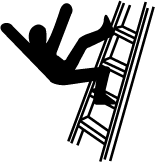
DIY SAFETY GUIDELINES
PLEASE READ !

1. Working with ladders and on rooftops can be dangerous. A fall from a ladder or rooftop can result in serious injury or even death. ALWAYS wear a properly secured safety harness and be very deliberate about every step you take on a ladder or rooftop. Safety harnesses kits can be purchased from many different sources on the internet.

The following is a small list of suppliers that offer reasonably priced safety harness kits.
A. http://www.whitecap.com/webapp/wcs/stores/servlet/wc/55327?gclid=CNvk-ajkj8YCFVKDfgodGzUANA
Or simply search the internet for for the terms "roofing safety harness" or "safety harness roof work". Safety harnesses can also be purchased from sources such as your local Home Depot® http://www.homedepot.com/p/Werner-Roofing-Safety-System-K211201/203907961?N=5yc1vZbzzi
Here are some safety tips from OSHA for working on roofs: Click Here
Remember ! It only takes a second to fall of a ladder or a roof. Never step onto a roof without a properly secured safety harness. NEVER !
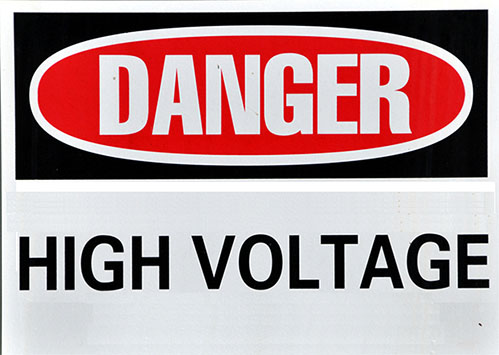
2. NEVER attempt to connect wires from any string of solar panels to any combiner box , junction box or inverter and never attempt to connect wires from any combiner box or junction box to any inverter. In other words, hands off any DC wiring from the solar panels to any device in the system. The reason for this is that the high voltage (up to 600 volts) DC current that is produced by the solar panels is far more dangerous than the 240 volt AC current that powers your home.
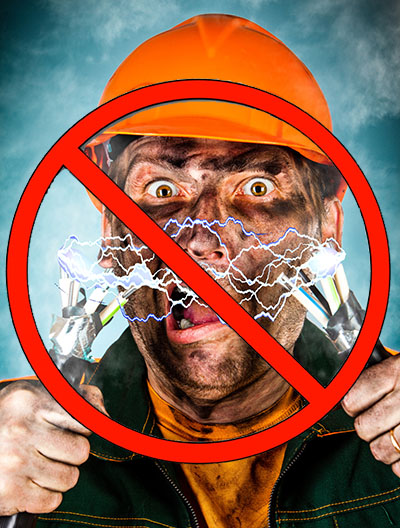
In addition, NEVER attempt to connect wires from the inverter to any subpanel or main electrical panel. The current coming from the inverter and from the grid that feeds every subpanel as well as your main electrical panel is rated at 240 Volts AC at several hundred Amps and just as lethal as the current that comes from you solar panels.
Both the DC wiring from your solar panels and the AC wiring to and from your any and all electrical panels, disconnects and circuit breakers, should be handled only by a licensed and experienced electrical contractor.

3. ALWAYS wear appropriate, tight fitting work shoes or boots that are designed for use on ladders and rooftops. Make sure that your shoelaces are secured and that your shoes are not worn out or lose fitting. A good pair of rubber-soled work boots (or shoes) that have no worn-down tread are a good choice. Many shoe stores sell specialty no-slip work boots that not only have superior grip material for the soles, but also larger and rougher tread as well.
The following is a small list of suppliers that offer reasonably priced safety shoes that are designed for use on ladder and rooftops.
A. https://www.bigrocksupply.com/Footwear.html
B. http://www.toolexperts.com/cougar-paws-roof-boot-sneaker-roofing-shoes.html
C. http://www.amazon.com/Cougar-Sure-Grip-Roof-Boot/dp/B00937U6G4
Here's a great article on roof safety that addresses roofing shoes. http://www.roofingcontractor.com/articles/83488-safety-advice-get-a-grip

4. ALWAYS work in teams of at least two people. Never access a rooftop alone. Solar panels are typically large (greater than 3 feet by 5 feet in diameter and are best handled by two people). NEVER bring children or inexperienced people on to a roof top. If any one ever expresses to you that they have a fear of heights, never bring that person on to a roof top with you.
NEVER handle a solar panels on the ground and especially on a rooftop during windy conditions. Even a moderate breeze can send a solar panel along with you on an unexpected flight that can damage a solar panel and can even result injury or even death. If you are on a rooftop and the wind begins to pick up. Immediately secure the items that are on the roof and immediately STOP the installation.
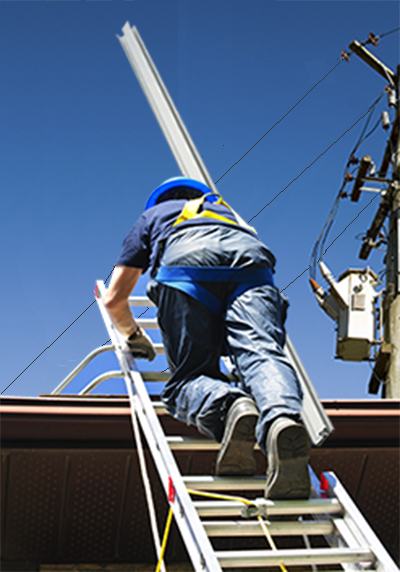
5. ALWAYS be aware of your surroundings when climbing a ladder or walking on a roof. Typical rooftops will have many hazard such as vent pipes, uneven sheathing, loose roofing materials. Even more dangerous is carrying a long electrically conductive object such as an aluminum mounting rail and coming in contact with an overhead powerline. ALWAYS check your surroundings before carrying material up a ladder and on to a roof.
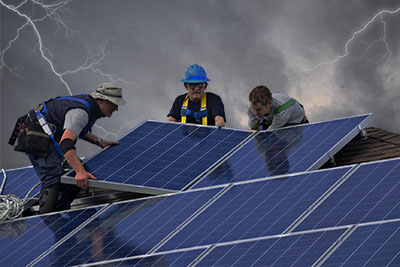
6. NEVER Climb a metal ladder onto a roof when conditions are rainy, icy or you hear thunder or see lightning in the distance. Not only are your chances of slipping and falling increased but being one of the highest conductive points in the area during a lightning storm is never a good idea.
Important:
Many states as well as local municipalities permit the home owner to perform a self installation of a solar electric system as long as the system is installed according to current NEC electrical codes. Although this may be permitted, Sunrona Solar®, Inc. highly recommends that the installation of any and all electrical portions of a solar system installation be performed only by a licensed electrician.
Installation of a solar electric system exposes the installer to voltages and currents that are considered lethal and can cause injury or even death if not installed properly. The decision to self install any part of this system is entirely up to the consumer's discretion. Sunrona Solar®, Inc. assumes no responsibility or liability for loss or damage, whether direct, indirect, consequential or incidental, which might arise out of the installation or use of any of or solar electric products. Self installation of any of the solar electric products that are sold by Sunrona Solar® Inc. shall be entirely at the user's risk.